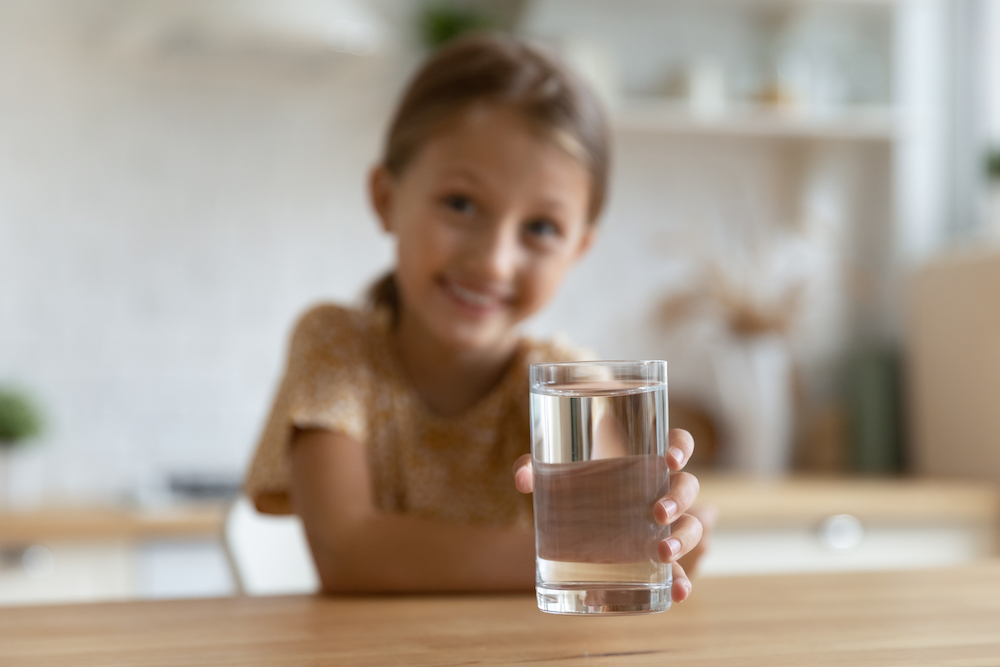The hot and humid summer has been brutal for many of us! To avoid heat illnesses, it’s very important that your family drinks a sufficient amount of water and stays hydrated. In this blog, we talk about how much water your children need and how to encourage them to drink enough water.
No matter the season, water is always the best choice of drink for children over 6 months of age. Water has no calories or added sugar; it keeps the joints, bones, and teeth healthy, helps with blood circulation, and helps maintain a healthy weight. It can also improve mood, memory, and attention in kids. The amount of water your child needs will depend on their age.
Babies under 6 months of age should not be given water. Instead, they should be exclusively given breast milk or formula. More than 80% of breast milk is made up of water and provides all of the necessary fluids for your baby. After 6 months, you can start introducing plain water to your infant. Until they reach the age of one, they only need 4-8 ounces per day as the rest of the water should come from breast milk or formula.
Between the ages of 1-3, children need about 4 cups of water per day which can include the water in milk. Between the ages of 4-8, kids should drink 5 cups and for older children, they should drink 7-8 cups. These are the standard recommendations but they should be adjusted based on levels of activity and environmental conditions. For example, when your child is involved in sports and other physical activities or if the weather is hot, they should consume more water. Children should also drink water before, during, and after physical activities to prevent dehydration.
We recommend avoiding giving your child sugar-sweetened beverages such as soda and juice. Children under 2 years of age especially should not be given these drinks. For older kids, these beverages should be limited as much as possible. The high content of added sugar in these drinks can lead to unhealthy weight gain, obesity, dental cavities, type 2 diabetes, and other long-term health conditions. Sugary beverages also contain “empty” calories that don’t offer nutritional value and discourage your kids from drinking plain water or eating the nutritious foods their bodies need.
Even juices that are labeled as 100% fruit juice should be strictly limited. Although they can contain some vitamins, they are still high in calories and added sugar. Eating whole fruits instead is always the better option as they contain a healthy amount of fiber which is lower in juice. Whole fruits are also good sources of water.
If your child is bored with drinking just plain water, you can make it more appealing and fun for them. Infusing water with fruits like lemons, berries, or cucumber can add some flavor. You can also freeze fruit into ice cubes to decorate their glass or use water bottles and cups that feature their interests, like favorite cartoon characters. Even a fun straw can go a long way.
One of the best ways to encourage your children to drink water is to be a good model. Drinking water in front of your child will help them develop the habit as well. Remind your kids to drink water frequently throughout the day as sometimes they can forget.
As a final note, it’s important to be aware of the symptoms of dehydration to address it quickly. For babies, some of the signs include less than the typical amount of wet diapers (6-8), excessive sleepiness, a sunken soft spot on the head, and a lack of tears while crying. For older children, you might see dry lips, infrequent urination or dark-colored urine, fatigue, irritability, flushed skin, headaches, lightheadedness, and rapid pulse.
If you have any concerns that your child is not getting enough to drink or questions about keeping your kids hydrated, please contact us.




